detail profile mary pickford
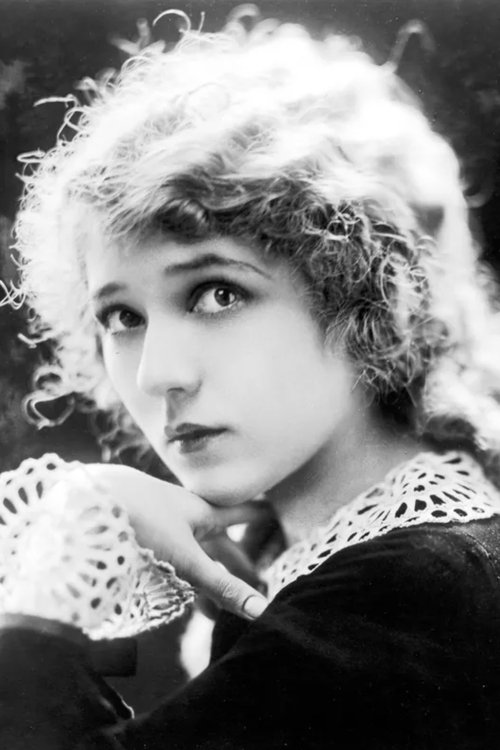
Mary Pickford
Baby Gladys
atau dikenal sebagai
Riwayat Hidup
Gladys Marie Smith (April 8, 1894 – May 29, 1979), known professionally as Mary Pickford, was a Canadian actress resident in the U.
S.
, and also producer, screenwriter and film studio founder, who was a pioneer in the US film industry with a Hollywood career that spanned five decades.
Pickford alongside her future husband, actor-producer Douglas Fairbanks, founded Pickford–Fairbanks Studios and United Artists, and was one of the 36 founders of the Academy of Motion Picture Arts and Sciences.
Pickford is considered to be one of the most recognisable women in history.
Known as "America's Sweetheart" during the silent film era, she is named on the list of the AFI's 100 Years.
.
.
100 Stars as the 24th-top female star from the Classical Hollywood Cinema era and the "girl with the curls.
"
Pickford was one of the Canadian pioneers in early Hollywood and a significant figure in the development of film acting.
She was one of the earliest stars to be billed under her own name, and was one of the most popular actresses of the 1910s and 1920s, earning the nickname "Queen of the Movies.
" She is credited with having defined the ingénue type in cinema.
She was awarded the second Academy Award for Best Actress for her first sound film role in Coquette (1929).
By the late 1920s, Pickford's career went into decline.
She received an Academy Honorary Award in 1976 in consideration of her contributions to American cinema.
Info Pribadi
Peran Yang Di Mainkan Mary Pickford
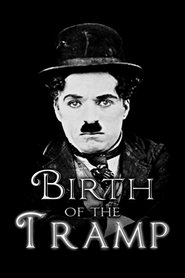 A look back at Charlie Chaplins...
A look back at Charlie Chaplins...Birth of the Tramp 2013
A look back at Charlie Chaplin's early life and career, from his rough childhood and music hall success in England to his early Hollywood days and the development of his enormously popular character, the Little Tramp, also called Charlot.
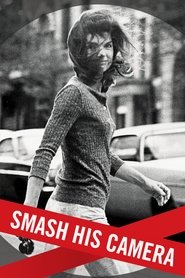 A film centering on the life...
A film centering on the life...Smash His Camera 2010
A film centering on the life and work of Ron Galella that examines the nature and effect of paparazzi.
 Before the G PG and R...
Before the G PG and R...Why Be Good?: Sexuality & Censorship in Early Cinema 2007
Before the G, PG and R ratings system there was the Production Code, and before that there was, well, nothing. This eye-opening documentary examines the rampant sexuality of early Hollywood through movie clips and reminiscences by stars of the era. Gloria Swanson, Mary Pickford, Marlene Dietrich and others relate tales of the artistic freedom that led to the draconian Production Code, which governed content from 1934 to 1968. Diane Lane narrates.
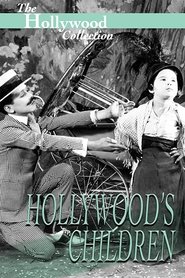 A documentary about child actors since...
A documentary about child actors since...Hollywood’s Children 1982
A documentary about child actors, since the beginning of motion pictures (narrated by Roddy McDowell).
 A celebration of Hollywood in the 1930...
A celebration of Hollywood in the 1930...Hooray for Hollywood 1976
A celebration of Hollywood in the 1930s, featuring a compilation of clips from features and newsreels of the era.
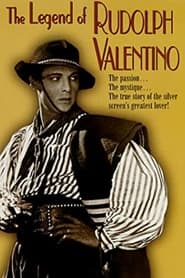 A documentary of Hollywoods first great...
A documentary of Hollywoods first great...The Legend of Rudolph Valentino 1961
A documentary of Hollywood's first great Latin Lover, the contradictions in his personal life, and his premature death.
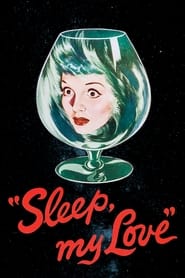 A woman wakes up in the...
A woman wakes up in the...Sleep, My Love 1948
A woman wakes up in the middle of the night on board a train, but she can't remember how she got there. Danger and suspense ensue.
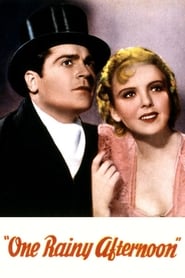 Suave French actor Philippe Martin provokes...
Suave French actor Philippe Martin provokes...One Rainy Afternoon 1936
Suave French actor Philippe Martin provokes a scandal when, in a darkened theater, he mistakes young Monique for his mistress, Yvonne, and tries to kiss her. Charged with assault, the quick-thinking Philippe claims it's French tradition to do as he did, and is let go. To his surprise, Philippe learns that Monique has paid his fine. As the tabloids exploit the situation, Monique dates Philippe, until a photo appears of him kissing Yvonne.
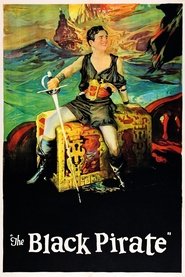 A nobleman vows to avenge the...
A nobleman vows to avenge the...The Black Pirate 1926
A nobleman vows to avenge the death of his father by the hands of pirates. To this end, he infiltrates the pirate band; Acting in character, he single-handedly captures a merchant vessel, but things are complicated when he finds that there is a beautiful young woman of royal blood aboard.
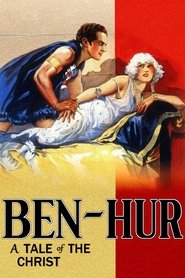 Erstwhile childhood friends Judah BenHur and...
Erstwhile childhood friends Judah BenHur and...Ben-Hur: A Tale of the Christ 1925
Erstwhile childhood friends, Judah Ben-Hur and Messala meet again as adults, this time with Roman officer Messala as conqueror and Judah as a wealthy, though conquered, Israelite. A slip of a brick during a Roman parade causes Judah to be sent off as a galley slave, his property confiscated and his mother and sister imprisoned. Years later, as a result of his determination to stay alive and his willingness to aid his Roman master, Judah returns to his homeland an exalted and wealthy Roman athlete. Unable to find his mother and sister, and believing them dead, he can think of nothing else than revenge against Messala.
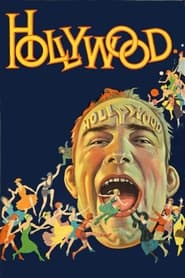 Angela comes to Hollywood with only...
Angela comes to Hollywood with only...Hollywood 1923
Angela comes to Hollywood with only two things: Her dream to become a movie star, and Grandpa. She leaves an Aunt, a brother, Grandma, and her longtime boyfriend back in Centerville. Despite seeing major movie stars around every corner, and knocking on every casting office door in town, at the end of her first day she is still unemployed. To her horror, when she arrives back at their hotel, she finds that Grandpa has been cast in a movie by William DeMille and quickly becomes a star during the ensuing weeks. Her family, worried that Angela and Grandpa are getting into trouble, come to Hollywood to drag them back home. In short order Aunt, Grandma, brother, boyfriend and even the parrot become superstars, but Angela is still unemployed...
 Stella Maris is a beautiful crippled...
Stella Maris is a beautiful crippled...Stella Maris 1918
Stella Maris is a beautiful, crippled girl, who is cared for by a rich family. They shield her from the harsh realities of the world, so that she has no idea of the cruel things that some people do. Unity Blake is a poor orphan all too familiar with the harsh realities of the real world. These two young women both fall in love with John, love which is complicated by the fact that he is still married to (though separated from) a bad wife.
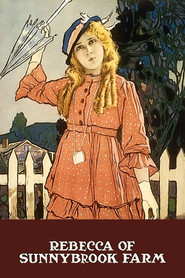 Behind in the mortgage on Sunnybrook...
Behind in the mortgage on Sunnybrook...Rebecca of Sunnybrook Farm 1917
Behind in the mortgage on Sunnybrook Farm and barely managing to feed seven hungry mouths, mother sends young Rebecca off to Riverboro to be raised by her wealthy Aunt Miranda. The little girl is treated like a prisoner by her strict Aunt, yet she gamely does her best to get an education. When spoiled girls at school mock the spirited Rebecca as "missy poor-house," she soon makes them come to eat their words. Despite many difficulties, Rebecca manages to help the less fortunate and spread joy in Riverboro, dreaming that her reward will come when she is "all growed up." This version is notable for having been adapted by famed female screenwriter Frances Marion.
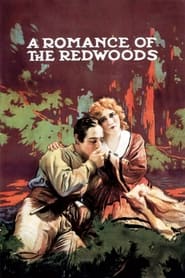 A young girl travels west to...
A young girl travels west to...A Romance of the Redwoods 1917
A young girl travels west to live with her uncle during the California Gold Rush only to find that he has been killed by Indians and his identity assumed by an outlaw.
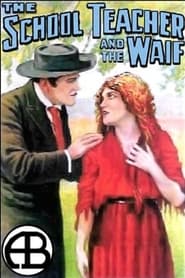 Nora the waif is forced to...
Nora the waif is forced to...The School Teacher and the Waif 1912
Nora, the waif, is forced to attend school. She warms to her teacher for the way that he defends her against the taunts of some of the students, but when she's made to wear a dunce cap, she flees the schoolhouse in shame. Unsupervised by her alcoholic father, Nora becomes a determined truant, wandering the town during school hours. There she catches the attention of a huckster, who convinces her that they will run away and be married. The schoolmaster, meanwhile, preoccupied by Nora's absence, leaves his other students to go find her. He encounters her at a crossroads, being spirited away by the huckster, and calls the man's bluff by saying that he'll find them a minister.
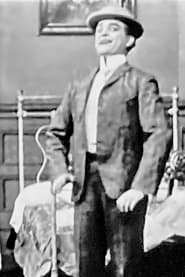 Two spinsters on their way to...
Two spinsters on their way to...Muggsy Becomes a Hero 1910
Two spinsters on their way to church, are accosted by a couple of burly tramps. When Mabel is called to the church meeting with her mother, she sends Muggsy a note asking him to meet her after the service so he may walk home with her. Muggsy is there on time, however, the old ladies are afraid to make the return trip unaccompanied. The pastor asks that a man escort them home. Poor Muggsy gets chosen, and when the trio reach the deserted part of the road, the tramps again appear.
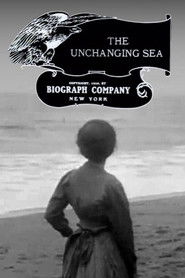 In this story set at a...
In this story set at a...The Unchanging Sea 1910
In this story set at a seaside fishing village and inspired by a Charles Kingsley poem, a young couple's happy life is turned about by an accident. The husband, although saved from drowning, loses his memory. A child is on the way, and soon a daughter is born to his wife. We watch the passage of time, as his daughter matures and his wife ages. The daughter becomes a lovely young woman, herself ready for marriage. One day on the beach, the familiarity of the sea and the surroundings triggers a return of her father's memory, and we are reminded that although people age and change, the sea and the ways of the fisherfolk remain eternal.
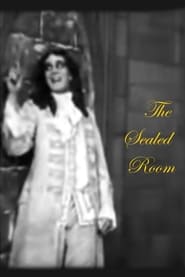 The Count sets out to make...
The Count sets out to make...The Sealed Room 1909
The Count sets out to make a private room for him and his Countess, built in such a way no one can see, hear, and most importantly, disturb them. But unbeknownst to the Count, his wife has set her eyes on the court minstrel. Based on Edgar Allan Poe's “The Cask of Amontillado” and Honoré de Balzac's “La Grande Breteche”.
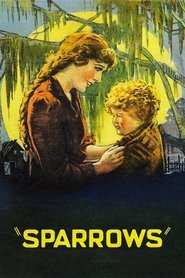 Molly the eldest child of a...
Molly the eldest child of a...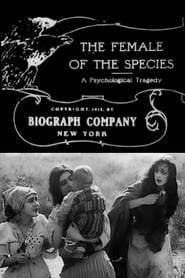 A man and three women leave...
A man and three women leave...